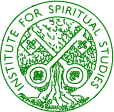
|
|
James Moorhouse: 'Bishop
|
Seminar delivered by Morna Sturrock on April 12, 2005On Tuesday evening, April 12th, Morna Sturrock, journalist, writer, lecturer and embroiderer, gave a seminar to the Institute for Spiritual Studies on James Moorhouse, a Bishop of magnetic power. Morna's wealth of information, enthusiasm for her subject and eye for significant detail resulted in a lively seminar for all of us. For ten years Bishop Moorhouse led the Church of England in Victoria, from 1876 to 1886, during which time he worked ceaselessly on various projects and plans. An inveterate traveller and planner, the Bishop's main legacy is the present St Paul's Cathedral. This building was designed by the eminent Victorian Age architect, William Butterfield. Interestingly, while Bishop Moorhouse struggled to get his co-religionists involved in funding the construction of the Cathedral, now faced by Federation Square, he thought the Great Melbourne Exhibition of the 1880's in the Carlton Gardens a "waste of wealth". Born in Sheffield, Yorkshire in 1826, James was the son of a cutler, and he quickly developed his rhetorical skills and his love of working people. Priested in Ely, he served curacies in London. It was a surprise when he was chosen by Bishop Perry for the Melbourne diocese. He was a liberal theologian. Throughout his stay in the Antipodes his addresses were covered thoroughly by the daily Melbourne Argus newspaper. Particularly groundbreaking was his tolerance of other denominations and his attempts to exchange pulpits. Morna Sturrock noted his interest in and study of three issues of the day: education, irrigation and prostitution. All three issues created much debate. With the passing of the 1872 free compulsory and universal education act, Moorhouse saw his chance of emphasizing the need for the Bible to be part of the state schools' education. He favoured non-denominational religious instruction to state school students, as was done in Britain. Unlike his church Registrar, Mr A'Beckett, the Bishop wanted state aid to Catholic and Jewish schools too. For the Bishop, man's failure to care for the land was the basic cause of the problem of water shortages, not the absence of sufficient prayer. This caused a great debate in Melbourne. One of Moorhouse's suggestions to combat the "acute" (his word) problem of prostitution was the White Cross Union for men. The first women's group helping the prostitutes were the precursors of the Mission to the Streets and Lanes, soon to become the Community of the Holy Name sisters. In this age before cars, radios and television, Bishop Moorhouse's lectures in venues such as the Melbourne Town Hall were widely attended and reported in detail. Moorhouse was surprised and troubled by the sectarian jealousies in colonial Australia. The bishop talked of "incredible hatred", the "vicious civil war", and the "bigoted howl against Rome". Worn out by his sectarian battles and struggles to raise money for the Cathedral (the Society for the Propagation of Christian Knowledge and the Society for the Propagation of the Gospel helped), he was made an old man after ten years in Melbourne. At one stage he even thought of selling the Cathedral site because of lack of funds for the new building. Towards the end of the talk Morna related Moorhouse's mystic experience, a short period of spiritual exultation which he recalled for the rest of his life. Seeing the big picture, being a source of inspiration and a man before his time, with an air of tolerance, a person who was inspired by his faith, Moorhouse found the battles against narrow-minded self-satisfaction, clubbishness, materialism, and intolerance wearing in his ten years as Melbourne's chief prelate. Moorhouse's liberalism lives on among his admirers, summed up by his words: "Christianity enlarges all the horizons." Morna Sturrock's book 'Bishop of Magnetic Power : James Moorhouse in Melbourne, 1876-1886' (Australian Scholarly Publishing) was launched in May and is available at the St Peter's Bookroom at the special rate of $41.80, rrp $44.
This site is hosted by St Peter's Eastern Hill,
Melbourne, Australia. |